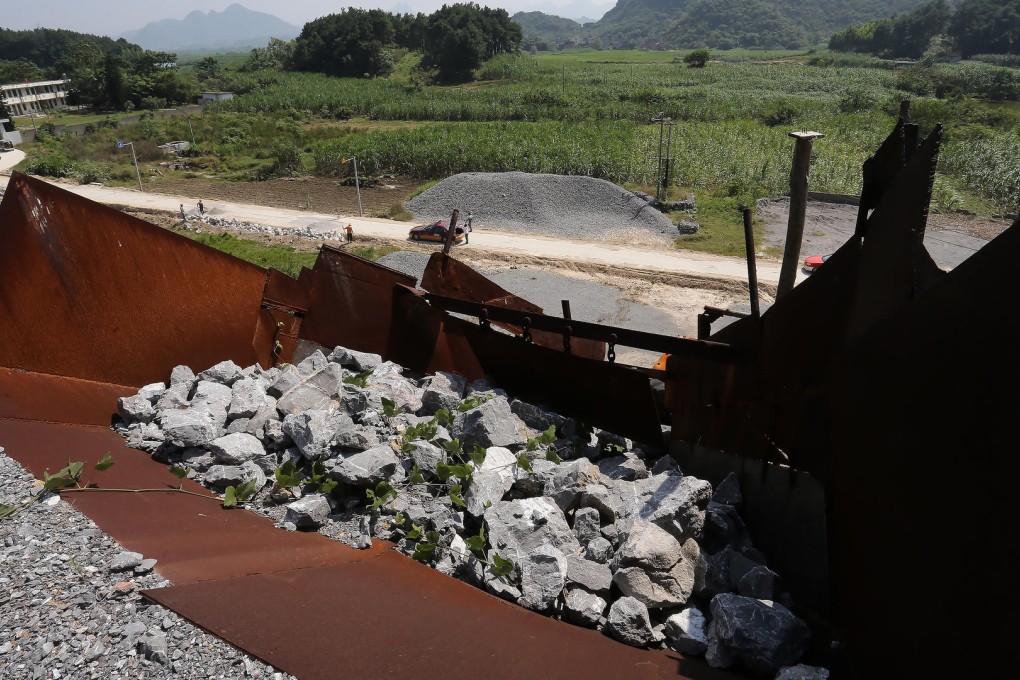China tightens mail security after deadly Guangxi parcel bomb attack

The mainland's postal service has ordered tighter checks on packages after a series of mail bombs that killed 11 people and injured 51 in the county of Liucheng in Guangxi province last week.
Mail carriers and overnight delivery services must conduct additional checks for explosives, dangerous chemicals, weapons, gunpowder and poisons, the State Post Bureau said on its website yesterday. Closer cooperation with police was also required, it said.
The statement alerted local police and authorities to be more vigilant during the ongoing week-long National Day holiday and the 60th anniversary of the establishment of the Xinjiang Uygur autonomous region - a sensitive time that might increase security problems.
The circular followed a series of 18 explosions in Liuzhou , Guangxi province last Wednesday and Thursday, which was blamed on a 33-year-old man, Wei Yinyong, who had long-standing disputes with neighbours and companies involved in stone quarrying.
The blasts hit a hospital, markets, a shopping mall, a bus station and several government buildings. Wei, identified by police as the sole suspect in the attacks, was confirmed dead in one of Wednesday's explosions, according to a local police report on Friday.
Besides Wei, another 10 villagers were killed in the explosions.